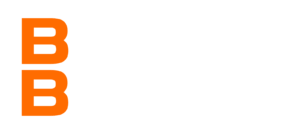Unilateral Pricing Policy (UPP) and Minimum Advertised Price (MAP) are both pricing strategies that manufacturers may use to protect their brand image and maintain resale price levels.
Minimum Advertised Price (MAP):
A MAP policy sets the lowest price at which a retailer can advertise a product for sale. It doesn't limit the price at which the products can actually be sold, just the price at which they can be advertised. For example, a retailer can sell a product below the MAP price, but they cannot advertise it below that price. If the retailer does not comply, the manufacturer may stop supplying the products to them.
Unilateral Pricing Policy (UPP):
A UPP is a policy that a manufacturer or supplier imposes on its distribution network, including retailers and wholesalers. The UPP sets a fixed minimum resale price below which the product cannot be sold. Unlike a MAP policy, a UPP policy controls the actual selling price, not just the advertised price. Retailers who violate this policy may also face penalties, including the possibility of the manufacturer discontinuing the supply of products.
In summary, the main difference between the two is that MAP controls the advertised price, while UPP controls the actual selling price.
Bridge Below can help you monitor and enforce your pricing policy by using the following services:
1. Monitoring and tracking: A key feature of Bridge Below is our ability to track prices across multiple online retailers. This monitoring could help to identify when and where UPP or MAP policies are being violated.
2. Automated alerts: Once a violation is detected, the system could send an alert to the manufacturer allowing for quick action to be taken to rectify the situation.
3. Data analysis and reporting: Bridge Below provides a wealth of data, which could be used to identify trends, such as which products are most often sold below the UPP or MAP, or which retailers are most frequently in violation of these policies.
4. Evidence collection: In the event of a policy violation, Bridge Below can provide evidence of the violation, such as screenshots or other records, which could be used in discussions with retailers or potentially in legal proceedings.
5. Enforcement: Bridge Below offers enforcement services, such as sending automated notices to retailers who are in violation of UPP or MAP policies.
